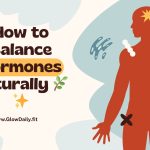Vitamin D, often called the “sunshine vitamin”, is essential for strong bones, immunity, mood balance, and overall health.
Yet, studies show that over 60% of people worldwide are deficient — often without realizing it.
🔍 Common Signs of Vitamin D Deficiency
1. Frequent Illnesses or Infections 🤒
Low vitamin D weakens immunity, making you prone to colds, flu, and other infections.
2. Constant Fatigue & Low Energy 😴
Even with enough sleep, you might feel drained because vitamin D helps regulate energy production.
3. Bone & Joint Pain 🦴
Deficiency can cause bone aches, back pain, and even increase the risk of fractures.
4. Mood Changes & Depression 😔
Vitamin D plays a role in serotonin production — low levels can lead to mood swings and seasonal depression.
5. Slow Wound Healing 🩹
If cuts or injuries take longer to heal, low vitamin D might be a factor.
6. Hair Loss 💇♀️
Severe deficiency has been linked to hair thinning, especially in women.
💡 How to Fix Vitamin D Deficiency Naturally
1. Get More Sunlight ☀️
- Aim for 10–20 minutes of midday sun on arms & legs, 3–4 times per week.
- Avoid sunscreen during short sun exposure (but use it if you stay out longer).
2. Eat Vitamin D-Rich Foods 🍳🐟
- Fatty fish (salmon, mackerel, sardines)
- Egg yolks
- Fortified dairy & plant-based milks
3. Take a Vitamin D3 Supplement 💊
- D3 (cholecalciferol) is better absorbed than D2.
- Typical dose: 1,000–2,000 IU daily (check with your doctor for your needs).
4. Combine with Vitamin K2 🥬
K2 helps direct calcium to your bones instead of arteries — great for bone & heart health.
💬 Bottom Line:
Vitamin D is essential for immunity, mood, and bone strength.
If you notice these symptoms, get your vitamin D levels tested and take steps to restore them naturally.


